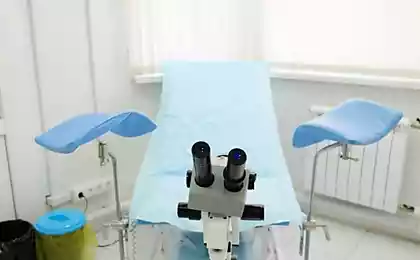226
Why a gynecologist won the Nobel Peace Prize
There is still war in different parts of the world. Thousands of innocent people suffer every day because of the fighting. Violent victims Women and children become more common, because it is easiest to offend the weak. Tens of thousands of women are victims of militants. Amid this chaos, however, there are people who are restoring faith in humanity.
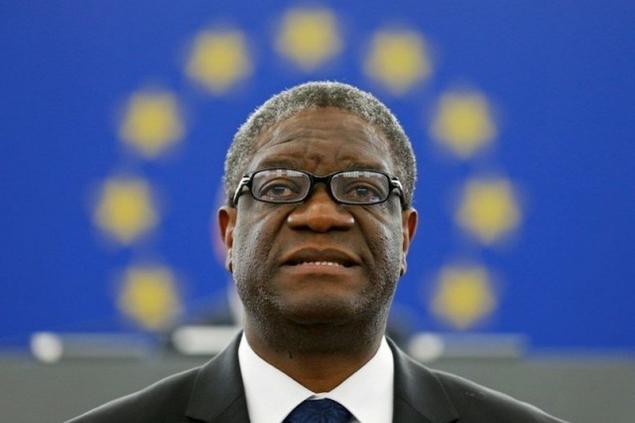
And today's edition. "Site" It tells the story of such a man. Dr. Denis Mukwege, a gynecologist, the founder of Panzi Hospital and a campaigner against crimes against women, has helped more than 50,000 women of all ages. When everyone didn't care, he pulled them out of the real trap.
Everyone knows that the Nobel Prize is one of the most prestigious and significant awards in the world. Since 1901, awards have been given in categories in physics, chemistry, physiology or medicine, and the Nobel Peace Prize has been awarded. This award is awarded to those who have made outstanding contributions to peace consolidation. In 2018 Nobel Peace Prize winners Become an Iraqi human rights activist Nadia Murad doctor Denis MukwegeThe story of which we will tell today.

Denis Mukwege is a Congolese gynecologist who has dedicated his life to protecting and rehabilitating victims of violence. Thousands of women in the Democratic Republic of Congo are being targeted by militants. Dr. Mukwage has repeatedly faced the terrible consequences of this tragedy, and therefore decided to help these women. He was convinced that the international community must recognize that violence against women was not a weapon of war.

Dr. Mukwege believes that violence is as destructive as the use of nuclear, chemical and biological weapons. That is why it must be banned and eradicated.
The Nobel laureate has repeatedly condemned the fact that mass violence against women goes unpunished and the government is not doing enough to change it. In addition, the doctor helps women, providing them with medical and psychological assistance.
Mukwege's story began when he first saw a woman in labor die of blood loss. Then he thought that the birth of a child should not be overshadowed by the grief of loss, it should be joy. That's when he decided to become an obstetrician.
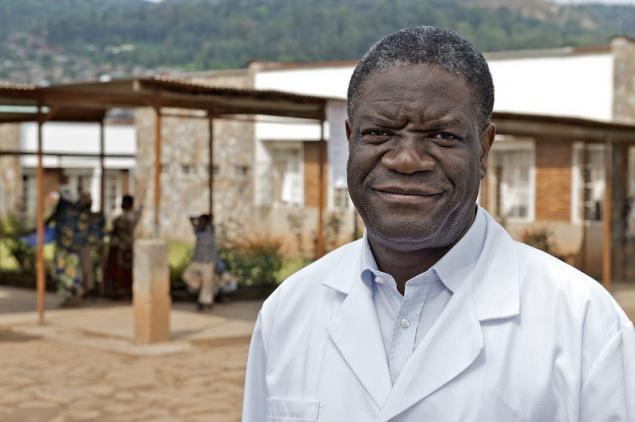
However, his plan was not destined to be realized, because the war made its terrible adjustments. Instead of taking care of pregnancy, he began to help victims of abuse who were physically, emotionally and spiritually overwhelmed.
The doctor recalls: “I had just taken a job at Bukavu Hospital, near the border with Rwanda. The first patient I saw came not to give birth or have a C-section. She came to us because she was a victim of mass rape. She was raped by several people who then shot her.
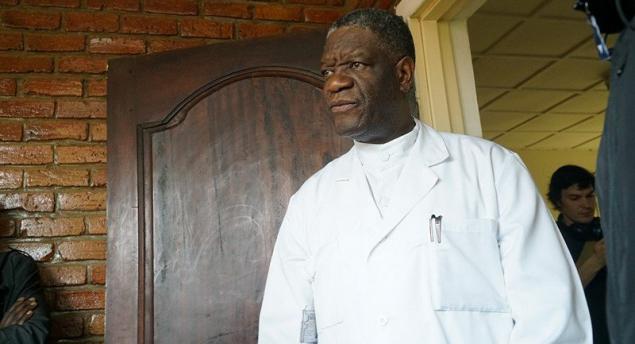
The doctor thought it was a unique case, but over the next three months, 45 more victims of horrific violence approached him. The militants were really ruthless towards women: they tortured and humiliated them, raped them, and then shot them. And such acts of violence happen there all the time.
And these are not just random incidents, but real acts of military aggression. Fighting in Congo has been ongoing since 1998. The country lies in ruins, the war officially ended a decade ago, but separate factions are still fighting and fighting continues. Women suffer as a result. Between 2006 and 2007 alone, 400,000 women were victims of violence. More than 5 million women died during the war.

These numbers are startling and frightening. I can't believe people are capable of something so horrible, humiliating and cruel. Dr. Mukwege is trying to bring this issue to the attention of the world and the public to stop such incidents. He seeks justice for these women.
Being raped is a stigma that is not easy to get rid of. Even if a woman manages to survive and recover psychologically after what happened, it is not a fact that she will be able to return to normal life. Many of them are homeless and live alone.
I was treating an 80-year-old woman who said, ‘Why didn’t you just let me die?’ Imagine being raped in front of your family, your children, your neighbors. How can you recover from this? They regret that they survived.
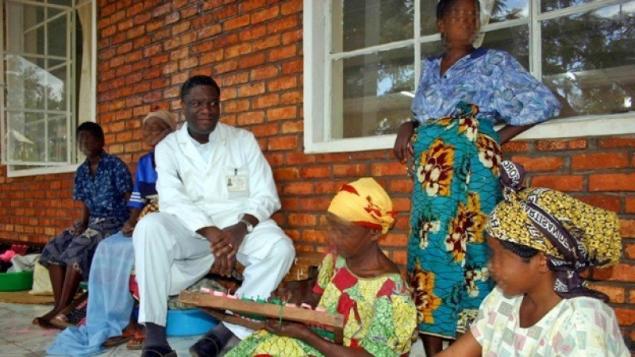
Dr. Mukwege saves the lives of these women, treats their physical injuries, and then helps to deal with emotional and psychological trauma. It helps survivors start a new life if society rejects them. Mukwege ensures that women are educated and able to support themselves.
The doctor went far beyond healing wounds. Now he provides not only medical, but also legal assistance to victims. Many of those he saved became activists and are now fighting for women’s rights.

The doctor says, I see these women trying to get out of the abyss. Giving up and giving up would be the easiest thing, but they find the inner resources to keep fighting. And they demand justice.” It is for justice that Dr. Mukwege fights. For centuries, violence against women was seen as an inevitable concomitant of war, but that must now change.
Thanks to people like Denis Mukwege, the world is changing for the better. Someday, the changes will become tangible, and women will no longer be the tools by which any military objectives are realized. Violence is a thing of the past. At least I really want to believe it.
The stories of people changing the world are very inspiring, which is why we tell you about them. For example, we recently shared the story of Tom Catena, a South Sudanese doctor who continues to save lives despite the war.
Everyone can help and change the world at least locally. As a doctor from Chelyabinsk, Evgeny Kosovsky, who helps the homeless every week to the best of his ability.
Did you like the article? Share it with your friends!

And today's edition. "Site" It tells the story of such a man. Dr. Denis Mukwege, a gynecologist, the founder of Panzi Hospital and a campaigner against crimes against women, has helped more than 50,000 women of all ages. When everyone didn't care, he pulled them out of the real trap.
Everyone knows that the Nobel Prize is one of the most prestigious and significant awards in the world. Since 1901, awards have been given in categories in physics, chemistry, physiology or medicine, and the Nobel Peace Prize has been awarded. This award is awarded to those who have made outstanding contributions to peace consolidation. In 2018 Nobel Peace Prize winners Become an Iraqi human rights activist Nadia Murad doctor Denis MukwegeThe story of which we will tell today.

Denis Mukwege is a Congolese gynecologist who has dedicated his life to protecting and rehabilitating victims of violence. Thousands of women in the Democratic Republic of Congo are being targeted by militants. Dr. Mukwage has repeatedly faced the terrible consequences of this tragedy, and therefore decided to help these women. He was convinced that the international community must recognize that violence against women was not a weapon of war.

Dr. Mukwege believes that violence is as destructive as the use of nuclear, chemical and biological weapons. That is why it must be banned and eradicated.
The Nobel laureate has repeatedly condemned the fact that mass violence against women goes unpunished and the government is not doing enough to change it. In addition, the doctor helps women, providing them with medical and psychological assistance.
Mukwege's story began when he first saw a woman in labor die of blood loss. Then he thought that the birth of a child should not be overshadowed by the grief of loss, it should be joy. That's when he decided to become an obstetrician.

However, his plan was not destined to be realized, because the war made its terrible adjustments. Instead of taking care of pregnancy, he began to help victims of abuse who were physically, emotionally and spiritually overwhelmed.
The doctor recalls: “I had just taken a job at Bukavu Hospital, near the border with Rwanda. The first patient I saw came not to give birth or have a C-section. She came to us because she was a victim of mass rape. She was raped by several people who then shot her.

The doctor thought it was a unique case, but over the next three months, 45 more victims of horrific violence approached him. The militants were really ruthless towards women: they tortured and humiliated them, raped them, and then shot them. And such acts of violence happen there all the time.
And these are not just random incidents, but real acts of military aggression. Fighting in Congo has been ongoing since 1998. The country lies in ruins, the war officially ended a decade ago, but separate factions are still fighting and fighting continues. Women suffer as a result. Between 2006 and 2007 alone, 400,000 women were victims of violence. More than 5 million women died during the war.

These numbers are startling and frightening. I can't believe people are capable of something so horrible, humiliating and cruel. Dr. Mukwege is trying to bring this issue to the attention of the world and the public to stop such incidents. He seeks justice for these women.
Being raped is a stigma that is not easy to get rid of. Even if a woman manages to survive and recover psychologically after what happened, it is not a fact that she will be able to return to normal life. Many of them are homeless and live alone.
I was treating an 80-year-old woman who said, ‘Why didn’t you just let me die?’ Imagine being raped in front of your family, your children, your neighbors. How can you recover from this? They regret that they survived.

Dr. Mukwege saves the lives of these women, treats their physical injuries, and then helps to deal with emotional and psychological trauma. It helps survivors start a new life if society rejects them. Mukwege ensures that women are educated and able to support themselves.
The doctor went far beyond healing wounds. Now he provides not only medical, but also legal assistance to victims. Many of those he saved became activists and are now fighting for women’s rights.

The doctor says, I see these women trying to get out of the abyss. Giving up and giving up would be the easiest thing, but they find the inner resources to keep fighting. And they demand justice.” It is for justice that Dr. Mukwege fights. For centuries, violence against women was seen as an inevitable concomitant of war, but that must now change.
Thanks to people like Denis Mukwege, the world is changing for the better. Someday, the changes will become tangible, and women will no longer be the tools by which any military objectives are realized. Violence is a thing of the past. At least I really want to believe it.
The stories of people changing the world are very inspiring, which is why we tell you about them. For example, we recently shared the story of Tom Catena, a South Sudanese doctor who continues to save lives despite the war.
Everyone can help and change the world at least locally. As a doctor from Chelyabinsk, Evgeny Kosovsky, who helps the homeless every week to the best of his ability.
Did you like the article? Share it with your friends!

